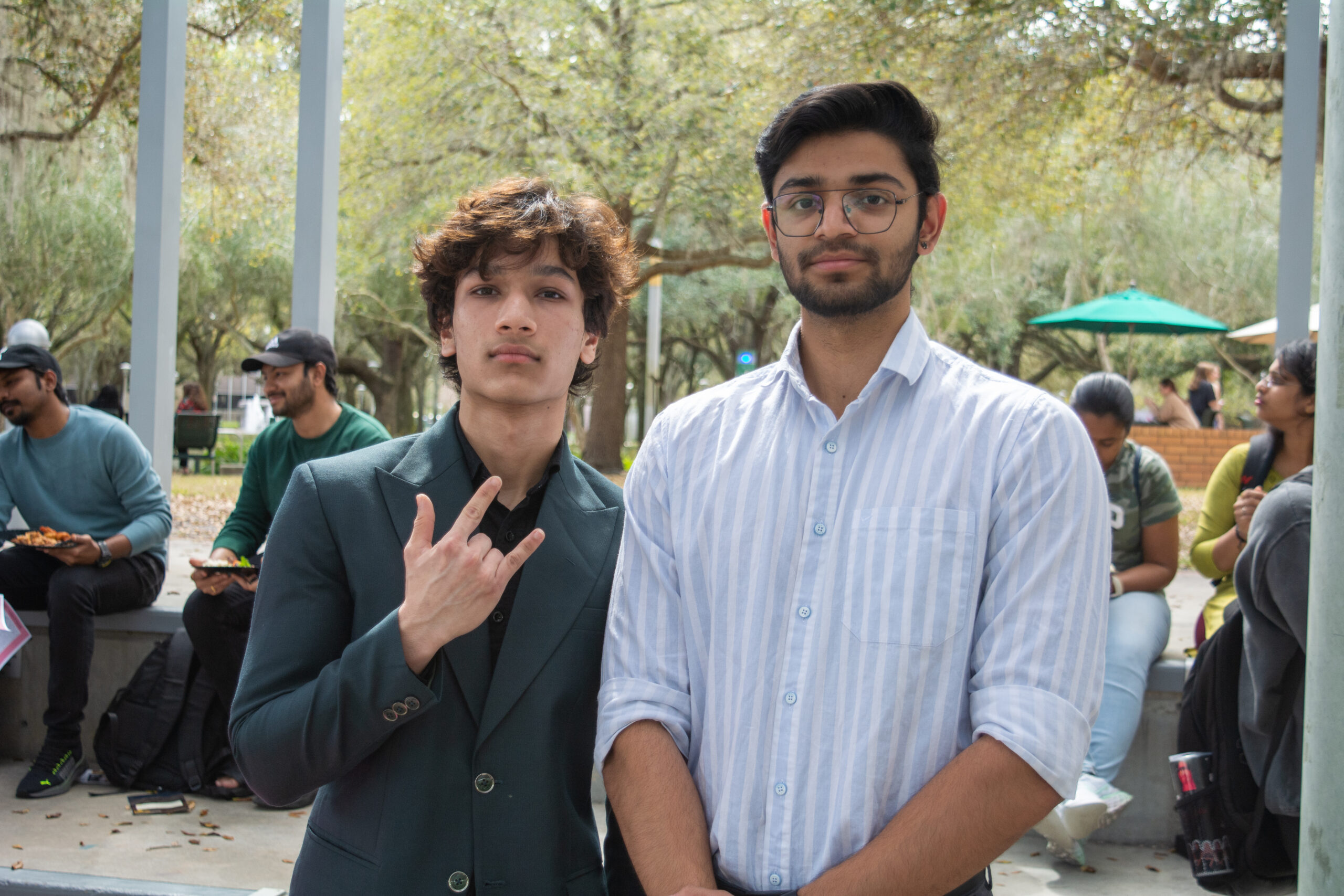Meet the candidates: Manik Jindal and Shubhankar Parashar

Freshmen computer science majors Manik Jindal and Shubhankar Parashar said they hope to represent the needs of international, undergraduate and working students as part of their community-driven platform.
The ticket currently does not have an official acronym for their campaign. However, they said they plan to accomplish three main goals: expanding access to resources and information for freshmen and sophomores, bettering working conditions and wages for student employees and fostering a more diverse international community.
Jindal said when coming to USF as a freshman or sophomore – especially as an international student – it can be difficult to find information on the operating hours of different buildings on campus, such as dining halls and the Recreation and Wellness Center. If elected to office, Jindal said he and Parashar would like to remedy new students’ lack of awareness of building hours by opening all campus facilities on a 24/7 basis.
Creating a better line of personal communication and interaction between the general student body and university leadership would also fall under their plan of helping new students acclimate themselves to campus, according to Jindal. He said he would work to create more interaction between the SG president and students as well as with President Rhea Law.
In order to better honor their work, the duo hopes to increase wages for student employees, according to Jindal. Having previously worked for Aramark dining services in Juniper-Poplar Hall, Jindal said he believes students are not paid equitably for the poor working conditions they endure.
Under his direction, USF would reach out to local businesses to generate more job opportunities on campus, according to Jindal. With increased jobs for students, he said he would like wages to be raised at least $2 above the current Florida minimum wage of $11 an hour. There was not a plan outlined on how to raise wages at the time of the interview.
The last goal, to better support USF’s international community, derives from a personal sense of responsibility, according to Parashar. Given that both himself and Jindal are international students, he said that the pair can greatly empathize and understand the struggles that come with moving to the U.S. for college.
“For internationals, they have to buy insurance to typically look for a job. They have to keep looking for the visa rules and everything, take around 20 credits for their scholarship, maintain a good GPA and take more than one online class per semester,” he said.
“There’s too many jobs that international students can’t apply to and that really hurts me when I see so many good international students who are qualified that can’t apply for a job because of the minimum wage and limited job availability,” he said.
Facilitating a better sense of school spirit will also be a major priority of the campaign, according to Jindal. In contrast to the social life and sense of community on other Florida college campuses, he said SG needs to build a larger sense of pride among USF students. There was not a plan provided on how to increase school spirit at the time of the interview.
Unlike the two other presidential tickets running in the election, neither Jindal and Parashar have served or are currently serving in SG. Both candidates previously served in their high school SG programs, which they said gave them the skills and knowledge necessary to serve USF’s student body.
Rather than seeing this as a weakness, however, Jindal said he hopes students will be able to understand that he and his running mate are part of the common people.
“This is the best point we have. Because most of the other candidates are already in SG, and I believe they are running because they are in the government and they think they have a shot. We are running because we need to change and because we need actual student body representation … [and] changes for the students,” he said.
“If we are elected, I want everyone to know that it’s not because we want to become popular, but because we want them to know that there’s a president that’s approachable. I want to be someone that can talk to them at any time and they can tell me any problems that they are facing.”







